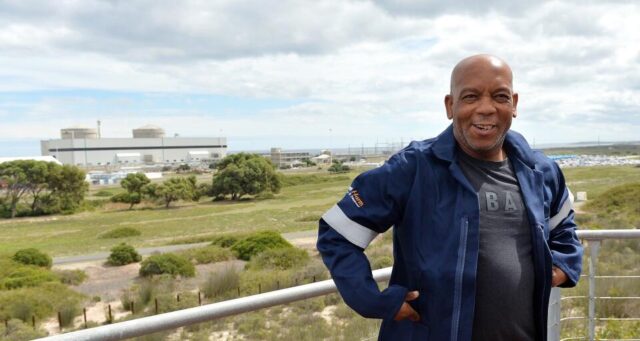The domestic currency was choppy in a short trading week, surrendering its gains from the previous week.
THE RAND traded weaker on Tuesday in increasingly risk averse markets, with the domestic currency weakening to R18.62 against the dollar, only having pulled back modestly so far in thin trade.
Nedbank Group Economic Unit said, “The rand was choppy in a short trading week, surrendering its gains from the previous week. It dropped to its lowest level in two weeks against the dollar, while it fell to levels last recorded in mid-2020 against the euro and the British pound.”
The rand is under pressure against a stronger dollar.
Bianca Botes, a director at Citadel Global, said the dollar gained ground on Monday as bets increased that the Federal Reserve would hike rates in May. Friday’s strong jobs data was indicative that the US labour market remained tight.
However, local issues also weighed on the rand.
Minister for Electricity Kgosientsho Ramokgopa’s chilling warning last week that Eskom would have an up to 10,000 megawatt electricity shortfall over the approaching winter season has, among other geopolitical factors, sent the rand tumbling as investor sentiment cooled on higher stages of load shedding, which the minister said could go as high as Stage 10.
During his tour of Eskom facilities last month, Ramakgoba said historically, the average demand in winter is about 35,000MW, which can go up to 37,000MW
“Now we are entering winter, which is going to be a very difficult period. The numbers suggest that historically the average demand is about 35,000MW, but it can go up to 37,000MW while Eskom, on average guarantee about 27,000MW.
“Eskom has no money to invest in capital cost. When you accept that as a given, and say there is nothing you can do as a country, then accept that you are going to have higher levels of load shedding, then accept that the total cost to the economy continues to be exponential,” he said.
In a note on Tuesday, Investec chief economist Annabel Bishop said, “The rand has weakened against the crosses, reflecting continued strong risk-off sentiment in global financial markets, while data has disappointed recently from China and risk of US recession is seen as rising again.”
Bishop said growth prospects remained weak given persistently high inflation. Bank failures in Switzerland and the US had exposed financial vulnerabilities that increased the downside risks for the global economy.
Last week the International Monetary Fund said global economic growth was likely to “remain at around 3% for the next five years”, its lowest medium-term growth forecast since 1990, and well below the average growth of 3.8% seen in the past two decades.
She said thin trading conditions around Easter had exacerbated the negative impact of bad news on the domestic currency, with a number of negative factors afflicting the rand last week.
Among other factors, Bishop said that there was still no solution in sight to South Africa’s ongoing electricity crises as the Karpowership gas to Power provision continues to be blocked by the Department of Forestry, Fisheries and the Environment.
“Eskom is now reported to be considering the purchase of electricity from a Karpowership plant located offshore from Mozambique although only 1000MW worth and wholly insufficient to stop load shedding or its escalation,“ Bishop noted.
– BUSINESS REPORT








